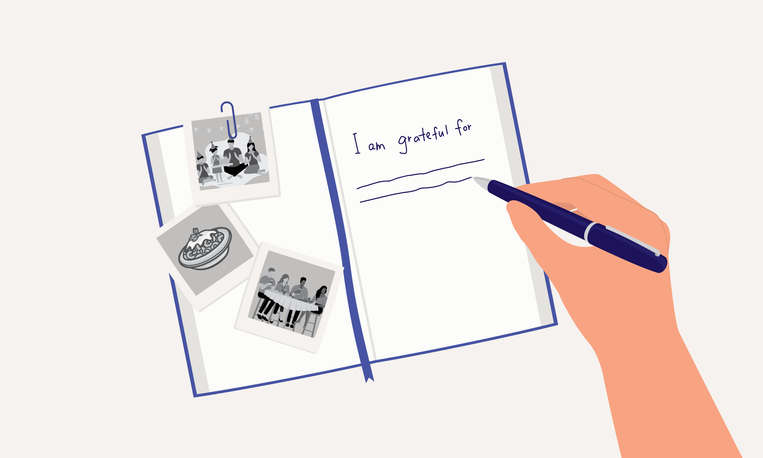From Linda Priestley, Editor-in-Chief
Every year, a group of friends gets together to celebrate their friendship (43 years as of spring 2023), reconnect, share news, and, above all, treat themselves. “We go beyond what we share on Facebook—we tell it like it is, the good and the not-so-good,” says Marie, one of our long-time readers. “We laugh, we support each other, we empathize. After weathering a few storms this year, I announced at the beginning of our gathering that every piece of bad news should be accompanied by something we’re thankful for—like the fact that I’m grateful for having friends for so many years with whom I get along so beautifully.”
Gratitude can be its own reward. The American psychologist Robert A. Emmons, one of the first scientists to study the subject 20 years ago, demonstrated that simply appreciating one’s good fortune is a great morale booster. Subsequent studies have supported these findings, and some have even reported physical benefits, such as regulating blood pressure.
Not only is gratitude a balm for the heart but expressing it out loud helps to reduce symptoms of depression, promote better sleep, and boost both self-esteem and personal satisfaction. Expressing it to your family, friends, partner, colleagues, and acquaintances strengthens bonds with them, and they, like Marie’s friends, are likely to have their own spirits lifted and want to thank you in return. Yes, gratitude is contagious!
It takes only a small dose each day to create benefits, experts say. Simply saying, “Wow, am I ever lucky that…,” as you get out of bed or when you turn on your work computer, for example, can put you in a good mood. If you make a habit of it, that’s when you’ll start noticing a difference, writes Joel Wong, an educational psychologist at Indiana University, in an article on gratitude. And, he says, you can develop the habit—the key is to be as specific as possible when you’re being grateful for something or someone in your life. Mentioning specific reasons for being thankful enhances the experience and increases your awareness of your good fortune.
Putting your gratitude in writing is one good way to focus on the positive. Writing in a gratitude journal or on pieces of paper that go into a gratitude jar every day isn’t for everyone, but fortunately, writing a brief note or email once a week or so will work, too.
I’m grateful for my neighbourhood, for the nature I find right on my doorstep, for winter and all the fun I have on the slopes, and for the holiday season and the opportunities it provides to spend time with family and friends. What are you grateful for?
The Gratitude Attitude
At healthy.iu.edu, you’ll find a list of 70 “Questions to Generate Gratitude” compiled by Joel Wong, a psychologist at Indiana University. (Search for the list by its title.) You can use these questions to deepen your reflections, reviewing and answering them—preferably in writing—to create a log of your blessings for you to consult whenever you want.
Here are five examples:
– What went well this week?
– What do I like about my neighbourhood?
– What activity do I especially enjoy?
– Who puts a smile on my face?
– What challenges have I overcome?





